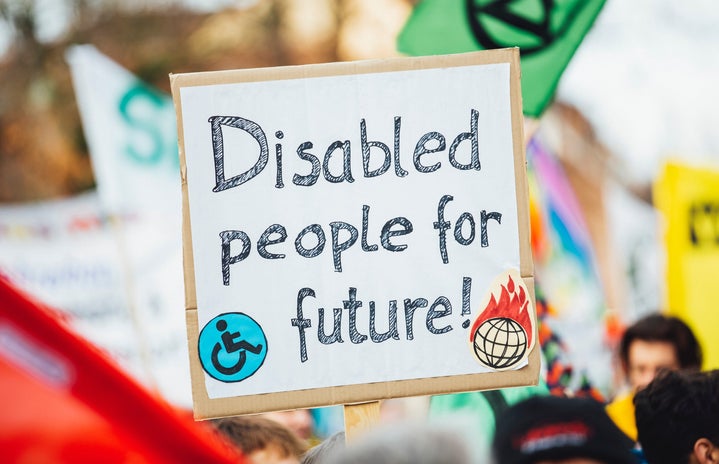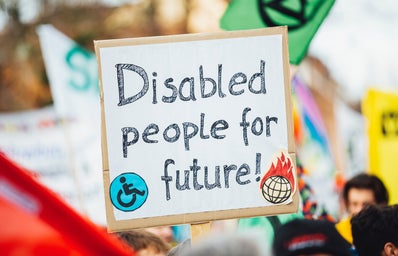Crip Camp: A Disability Revolution is a 2020 documentary available on Netflix. Crip Camp tells the story of a summer camp, Camp Jened, that was created for people with disabilities and how it inspired a disability rights activist movement in the 1970s. As one of our writers at Her Campus at Coastal Carolina recently noted, many activist conversations revolve greatly around race, gender and sexuality but leave out important conversations about ability. As she stated, people with disabilities “are set at a disadvantage larger than most of anyone because they are usually left out of the important conversations.”
Crip Camp was created as one way to begin the conversation about disability rights and activism. The documentary has several campers and counselors that speak about their time at Camp Jened and the movement. For many campers, Jened was the one place where they described that they could “feel cool” or “fit in.” Together, all of the campers who had physical and mental disabilities (including multiple sclerosis, cerebral palsy, polio, and others) worked communally to help one another have a fun time and be taken care of. Many campers had their first romantic love interests here and enjoyed singing, dancing, and smoking cigarettes. The camp was a haven for them to interact as teenagers for once. Throughout the documentary, viewers can see several campers give insight on parts of their lives that are frustrating or unique. One camper notes the inability to ever be alone as all people want to be from time to time. Due to his disabilities, he always has a parent or adult present with him to help but he explains that he, as everyone else, wants time alone to think.
As many of the campers grow older and leave the campsite, they realize a stark difference between Jened and the rest of the world. In the world, they understand how little things are suited to help them and begin taking part in the 1977 504 Sit-In, a protest that was created to make changes to the 1973 Rehabilitation Act. The 26 day sit-in that took over the fourth floor of a federal building in San Francisco was an extreme difficulty for many of the people with disabilities who participated, including people who did not bring a back up ventilator and those who struggled to sleep on the floor. Crip Camp honestly paints the trials that protesters at the time faced in the effort as well as the triumphs. One such triumph was when the Black Panthers arrived to provide free meals to the protesters in solidarity, sending a message that the Black Panthers also stood in support of the disabled community. This helped to develop the Civil Rights Movement into a movement that actively worked for the progress of all individuals, together.
Those protesting broke records as the 504 Sit-In was the longest non-violent occupation of a federal building in United States history. Out of about 150 protesters, 14 people with disabilities and 8 attendants went to D.C. to meet with Joseph Califano, the secretary of the Department of Health, Education, and Welfare (HEW) who had control of the guidelines of Section 504. The rest of the protesters continued to occupy the San Francisco building during this time and the D.C. protesters continued their work, forcing a congressional hearing where Judy Heumann emotionally and famously addressed the representatives. The following days, the group continued pressing on and followed President Jimmy Carter to his church and Califano to a press club. Finally, Califano signed the regulations on April 28, 1977.
Still after, the fight was not over. Disability rights continued with movements like the Capitol Crawl on March 13, 1990, which included over 1,000 protesters demanding that Congress pass the Americans with Disabilities Act (ADA). The Capitol Crawl was a physical demonstration to show how inaccessible architecture impacts people who have disabilities. The ADA was later passed as well, but disability rights organizations have continued to work towards a more equitable future and pushed back against certain actions including cuts to Medicaid.
Crip Camp is an educational documentary that helps give a microphone to another voice which deserves to be heard and has been oppressed historically. The documentary is honest and impactful. I recommend it to anyone for growing your understanding of disability rights and historical movements.


